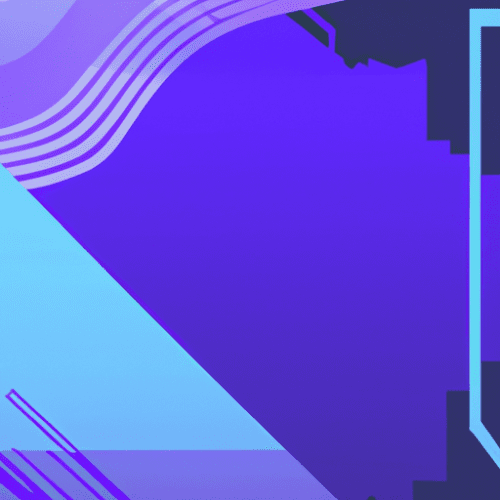
Introduction: The Rise of AI Writing in Academia
The digital revolution has dramatically transformed the landscape of higher education, empowering students and educators with resources previously unimaginable. Among the most significant innovations is AI-assisted writing. Tools fueled by artificial intelligence now help students generate essays, research papers, and academic assignments with unprecedented speed and accuracy.
Yet as the popularity of AI-generated content grows, a heated debate has emerged: Is AI writing undermining academic integrity, or is it the bridge to an inclusive, future-ready education? For students and professionals seeking affordable and quality support with their coursework or diplomas, understanding the role of AI writing services like AffordablePaper.us is more important than ever. This article delves into the controversy, explores the benefits and challenges of AI tools in education, and proposes pathways for responsible integration.
Main Research: Navigating the Double-Edged Sword of AI in Academic Writing
The Concerns: Cheating, Originality, and Authentic Learning
At the heart of the debate lies concern over academic dishonesty. Some educators argue that relying on AI to write essays or research papers amounts to “the new cheating.” They fear that automated tools allow students to submit work they haven’t truly researched or written, threatening the credibility of academic qualifications.
- Plagiarism and Originality: While AI can generate human-like text, some worry it blurs the line between original thought and algorithmic output. Academic institutions rely on originality as a key assessment criterion, yet AI-generated content challenges traditional plagiarism detection tools.
- Lack of Skill Development: If students delegate their critical tasks to AI, are they missing out on honing vital research, analytical, and writing skills? Some educators argue that over-reliance could erode independent thinking and scholarly rigor.
- Academic Integrity Policies: Colleges and universities are grappling with how to revise their honor codes and adapt to the presence of intelligent writing aids.
The Opportunities: Efficiency, Access, and Empowerment
On the other side of the argument, many believe that AI-assisted writing is the inevitable next step in higher education, offering advantages that improve both learning outcomes and accessibility.
- Leveling the Playing Field: Not all students enter university with equal writing proficiency or native language fluency. AI tools can help non-native speakers and those with learning differences communicate their ideas more clearly, making academic success more equitable.
- Improved Efficiency and Productivity: AI writing aids dramatically reduce the time needed for drafting, outlining, citing sources, and editing. For students juggling work, family, and studies, these efficiencies are game-changing.
- Affordability and Accessibility: Platforms like AffordablePaper.us harness AI to deliver high-quality, cost-effective writing services, making expert guidance available to a broader audience than traditional tutoring or editing could reach.
- Learning by Example: Many students use AI-generated drafts as learning tools, helping them understand structure, argumentation, and citation in practice. AI can serve as a writing coach, providing instant feedback and suggestions for improvement.
The Middle Ground: Responsible Use and Ethical Integration
Instead of viewing AI as a threat, forward-thinking educators and writing services advocate for a balanced approach that integrates AI as a supplement rather than a replacement for academic effort. Here are some best practices:
- Transparency: Students should disclose when and how AI tools have aided their writing, promoting openness and accountability.
- Skill Building: Rather than simply submitting AI-generated content, students and professionals can use these tools for brainstorming, outlining, or refining drafts—ensuring they actively engage with the material.
- Educator Guidance: Instructors can integrate AI writing aids into their curricula, teaching students to use modern tools responsibly in research, analysis, and composition.
- Ethical Customization: Reputable writing services like AffordablePaper.us combine AI efficiency with human expertise, ensuring each assignment is customized to meet academic standards and ethical guidelines.
Case Study: AffordablePaper.us Leading the Way
At AffordablePaper.us, we believe in the ethical and responsible integration of AI-assisted writing. Our approach blends the precision and affordability of AI tools with the critical thinking and subject expertise of seasoned writers. Every essay, thesis, or research paper is a collaborative effort where the technology serves students—not the other way around.
By offering cost-effective writing services with AI support, we empower students and professionals to achieve academic success without compromising their personal growth or integrity. Our platform encourages users to view AI as a learning partner, not a shortcut.
Conclusion: Embracing AI as the Future of Higher Education
So, is AI writing the new form of academic cheating, or is it the driving force behind a more accessible, efficient, and inclusive education system? The answer depends largely on how this technology is used.
Like calculators in mathematics or spell-checkers in writing, AI has the potential to make education more effective and democratized, provided its application is transparent and principled. The key is to foster a culture where students use AI tools to enhance their learning, not to bypass it. Institutions, educators, and writing services must collaborate to reimagine academic integrity guidelines and leverage technology for genuine skill development and knowledge acquisition.
At AffordablePaper.us, we envision a future where AI writing is not a substitute for learning, but a catalyst for it. By merging affordability, quality, and technological innovation, we enable students and professionals to meet the demands of modern academia without losing sight of the true value of education: growth, discovery, and integrity.
As AI continues to shape the future of higher education, let us embrace its potential while retaining the human touch that makes learning meaningful. The tools may change, but our commitment to excellence and ethics must remain constant.
Ready to experience the benefits of ethical, AI-assisted writing? Visit AffordablePaper.us and see how we can help you achieve your academic goals—smartly, affordably, and responsibly.







